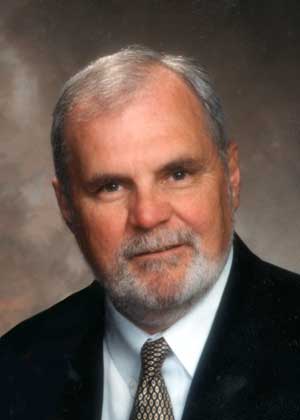The Way I See It

July 20, 2007
BY Mike Bryan
I was asked recently by a reporter, "How big do you think the ethanol industry will get?" My answer without hesitation was, "How big is the world?" There are virtually no limits on how much ethanol and other forms of renewable energy can be produced. We are limited only by our imagination and determination.
The recent 2007 Fuel Ethanol Workshop in St. Louis was clearly a testament to that growth potential. With attendance topping 5,400, over 700 exhibitors and 26 countries represented, I think we can assume that ethanol is now part of the world's energy future.
The ethanol plants of the future will be self-contained energy producers. They'll produce not only fuel for our cars, but sufficient power to be self-sustaining and in some cases enough energy to be sold onto the public power grid. The technology is already in place to turn almost every ounce of feedstock into marketable energy. In the years ahead, this concept can and will be extrapolated on a community level, as well.
It is time communities everywhere take steps to become more energy independent and reduce their carbon footprints. Cities small and large in every country on Earth export millions of dollars every year for energy. This is money that leaves the community never to return.
I believe there is a better way to keep more money and jobs at home—by reducing imported fossil fuel use through the introduction of renewable energy, not just by building a world-class biofuels plant because that's simply not practical in every community. I'm talking about examining the needs of a community, the feedstocks available and then designing renewable energy facilities suited specifically for the needs and resources of that community.
This commitment to community sustainability has led BBI International to develop what we call Community Initiatives to Improve Energy Sustainability (CITIES). This program is designed to help cities around the world become more sustainable through the use of renewable energy. From biofuels to wind and solar power, anaerobic digestion, thermal power, algae production, and more, these are the things that are available for a more sustainable lifestyle and greater economic security.
Some might say that it's not feasible to build anything but large, highly competitive production facilities. Try telling that to a community of 50,000 people that exports over $150 million annually for energy alone. Keeping money at home, and creating more jobs and substantial economic development, gives this concept a clear competitive advantage.
As the saying goes, it's time we "think globally, but act locally."
That's the way I see it!
Mike Bryan
Publisher & CEO
mbryan@bbibiofuels.com
The recent 2007 Fuel Ethanol Workshop in St. Louis was clearly a testament to that growth potential. With attendance topping 5,400, over 700 exhibitors and 26 countries represented, I think we can assume that ethanol is now part of the world's energy future.
The ethanol plants of the future will be self-contained energy producers. They'll produce not only fuel for our cars, but sufficient power to be self-sustaining and in some cases enough energy to be sold onto the public power grid. The technology is already in place to turn almost every ounce of feedstock into marketable energy. In the years ahead, this concept can and will be extrapolated on a community level, as well.
It is time communities everywhere take steps to become more energy independent and reduce their carbon footprints. Cities small and large in every country on Earth export millions of dollars every year for energy. This is money that leaves the community never to return.
I believe there is a better way to keep more money and jobs at home—by reducing imported fossil fuel use through the introduction of renewable energy, not just by building a world-class biofuels plant because that's simply not practical in every community. I'm talking about examining the needs of a community, the feedstocks available and then designing renewable energy facilities suited specifically for the needs and resources of that community.
This commitment to community sustainability has led BBI International to develop what we call Community Initiatives to Improve Energy Sustainability (CITIES). This program is designed to help cities around the world become more sustainable through the use of renewable energy. From biofuels to wind and solar power, anaerobic digestion, thermal power, algae production, and more, these are the things that are available for a more sustainable lifestyle and greater economic security.
Some might say that it's not feasible to build anything but large, highly competitive production facilities. Try telling that to a community of 50,000 people that exports over $150 million annually for energy alone. Keeping money at home, and creating more jobs and substantial economic development, gives this concept a clear competitive advantage.
As the saying goes, it's time we "think globally, but act locally."
That's the way I see it!
Mike Bryan
Publisher & CEO
mbryan@bbibiofuels.com
Advertisement
Advertisement
Upcoming Events





